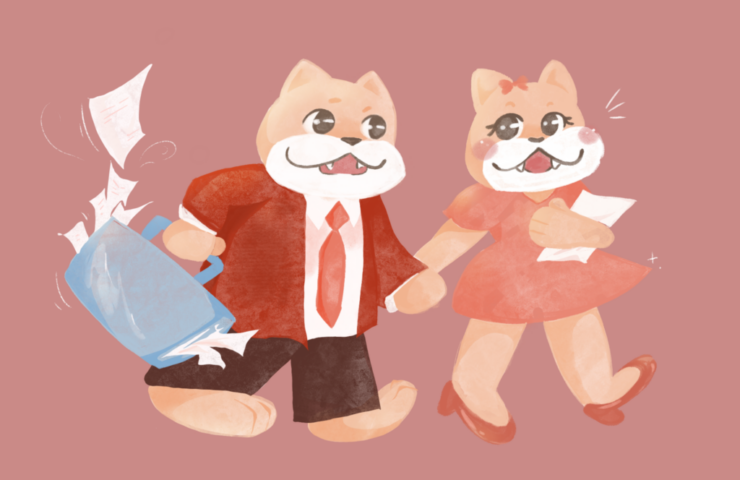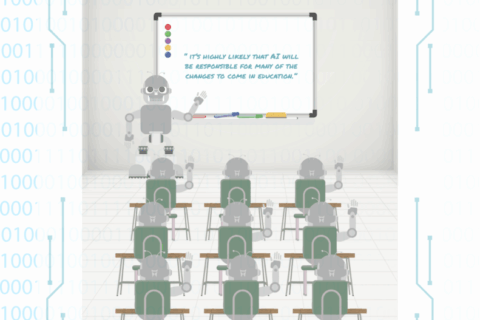Graphic by: Cali Adams
With the start of the Fall semester, students begin the quest for internships.
Looking for a new internship can be daunting, but it is an essential part to build a resume during your undergraduate career. Networking by making connections within your field, polishing your resume and writing a good cover letter are all essential parts of looking and landing an internship.
Students should start making networking connections by reaching out to professors, classmates, alumni and professionals they’ve interacted with during undergrad, said assistant director of University career services at UH Sugarland and Katy Arrianna O’Quin.
“Networking isn’t just about asking for opportunities; it’s about intentionally building relationships. Attend career fairs, university events, or join student organizations, as these spaces can lead to internship opportunities or introductions to potential employers,” O’Quin said.
Starting Out
Platforms like LinkedIn can also be invaluable to make connections with professionals in your field and connect with them.
After you connect with professionals in your field, ask them if they are available to meet for a coffee or a quick phone call. Also, consider a reverse interview and ask them any questions you may have. Connecting with people in your field can provide invaluable insight and may help you with your internship search.
Additionally, your resume is arguably the most important tool when looking for an internship. The resume should be clear, concise and tailored to the specific internship you are applying for.
It is important to include and highlight relevant coursework, projects and part-time jobs or volunteer experiences that demonstrate transferable skills, O’Quin said.
“Start with a strong summary statement, followed by sections on education, experience and skills,” O’Quin said. “Use bullet points to describe your accomplishments, focusing on effective action verbs and measurable outcomes.”
It is important to keep your resume to one page, especially for entry-level roles, unless instructed otherwise.
While the resume is important, the cover letter is your chance to introduce yourself beyond it. It is important to tailor a cover letter for each specific role you’re applying for because it’s also an opportunity to express your enthusiasm and communicate your career goals, O’Quin said.
After polishing your resume and cover letter, apply to as many internships as you can. The more you apply to, the better your chances are of getting an interview.
Next Steps
After applying, the hopeful next step is getting an interview.
An interview is your chance to impress the interviewer and make your impression on them. This is the place where you want to stand out as the ideal candidate for the role.
“Preparation is key to acing anything in life, especially an interview. Research the company, its culture and the role you’re applying for,” O’Quin said. “Practice answering common interview questions, and have specific examples ready that highlight your skills and achievements.”
Be prepared before walking into the interview room. Know your resume inside out, be ready to answer questions about your experience. Also, ask the interviewer thoughtful questions, as it shows engagement and genuine interest, O’Quin said.
It is important to dress professionally and have a copy of your resume with you. Additionally, if it is a virtual interview, test your technology and make sure your surroundings are clean and proper.
Furthermore, do not forget to email a thank you note to your interviewer after. It shows genuine interest in the role and is a great way to show appreciation for the interviewer’s time. It can also help you stand out and make a positive impact on the hiring manager.
End of a Long Road
After months of applications and interviews, landing an internship is a feat worthy of celebration. However, the work does not end there.
Your first internship is an opportunity to learn and grow. Be proactive—ask questions, seek feedback and show initiative, O’Quin said.
“You won’t know everything right away, and that’s okay. Focus on being dependable, adaptable and willing to contribute,” O’Quin said. “It’s also important to observe the company’s culture and communication style.”
During your time at the company, focus on building relationships with your colleagues. These people are professionals in your field with years of experience. They can provide you with guidance and potentially become mentors.
“Most importantly, embrace the learning process and take notes on what you enjoy and what areas you may want to explore further,” O’Quin said.





Recent Comments